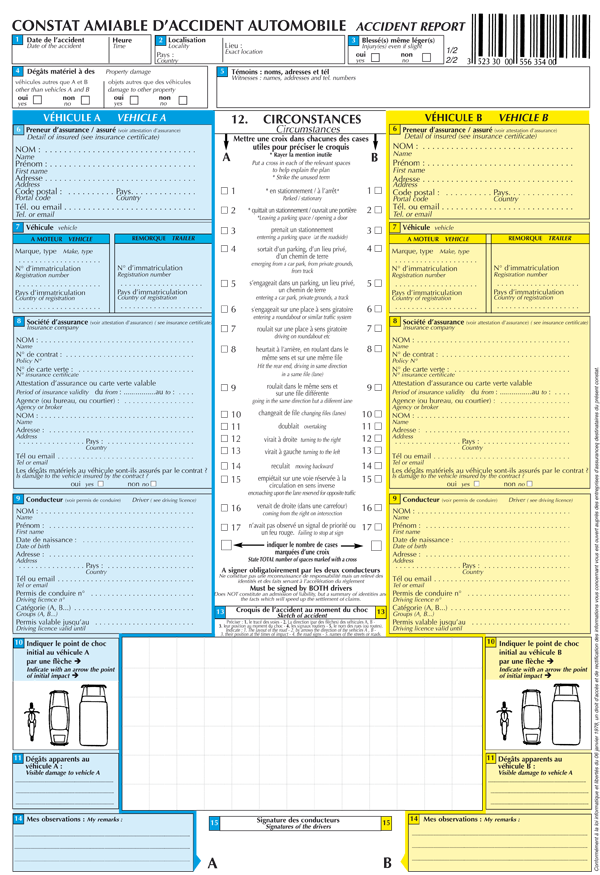3 practical steps to claim for a road accident in Europe

Are you about to embark on a grand tour of Italy by car or motorbike? Drive to Paris for a mini break? Take a summer road trip through French and German vineyards? Don't tell us....We are stuck in the office and rather envious of your trip. Only joking. On a more serious note, we are not here to spoil your spirit of adventure. Quite the opposite actually. We want to equip you with useful facts and tips in case you need to report a claim with your car insurer. So, here's what to do and remember: CONTACT, CHECK, CALL.
RELATED: 5 car checks you should make before driving to Europe
Contact the police
Whre do you start if you have an accident with your car in France or in Spain for example? The driving rules can be quite different from one European country to another. Ideally you will have planned your trip and taken with you all the essential documents for your car: Your V5C, your driving licence and your insurance cover note. (By the way, there's is also a very good printable guide on driving in Europe from the Foreign And Commonwealth Office here.)
If you are driving your own car you will need to contact your insurer (see below).
If you hired a car, you need to call the car hire company to report the accident, and record very carefully any damage done.
Finally, in most European countries, it is a legal requirement for the local police to attend a road accident if a foreign vehicle is involved. Make sure you ask for a copy of the police report.
Have you submitted a car insurance claim recently? Join the 120 people who have already reviewed and rated their insurance claim on Claimscore to help others buy more wisely.
Check the European Accident Statement (EAS)
What is a European Accident Statement?
It is a form that motorists use to record their version of a collision. For example, in France, it's called a Constat Amiable and looks like this:

The form is pretty self explanatory but if you are unsure of anything, you shouldn't fill it in nor sign it. If you do and log a claim for a new incident, it might obviously impact your car insurance renewal price and increase it, hence it's best to exercise caution.
Filling an EAS
- Both you and the driver of the other vehicle will need to fill in this document.
- Each of you uses either the blue or yellow column to add your details and observations.
- You can also add the contact details of any witnesses.
- The central grid space is here for you to draw a summary of the location of the collision.
- Don't forget to include road markings, directions and any road signs.
- If you are in disagreement with the details the other driver has written down, you can use the back of the document to add more of your own details and version of the incident.
"Would you know how to fill an EAS if you had a car accident in Europe?"
Keep a copy
The European accident statement has two sheets, the second one being a carbon copy of the first one. Once you and the other driver have finished filling in the top page and you have both signed at the bottom, keep one copy for you and your insurance. The other copy is for the other driver for the same reason.
You should only sign if you are happy that you understand all the information that has been added to the document. For more information about EAS forms and dealing with a collision abroad, read in-depth advice from the Citizen Bureau.
Call (or email) your insurer
You should contact you car insurance company immediately if your car has had a major collision and you can’t drive it off, or if you are driving a hire car whilst being abroad.
If you were involved in a minor collision, you can contact your insurer to check how long you have to submit your claim and whether you can do it once you are back in the UK.
Hopefully you will have a peaceful holiday and won't need any of the above advice. So we wish you Bonnes Vacances. However if you have had experience of submitting a claim for an incident that happened in Europe, we'd love to have your input on here. What other advice would you give based on what happened to you? What tips have you learned? Let us know in a comment below.

0 Comments
Please sign in to post a comment.




